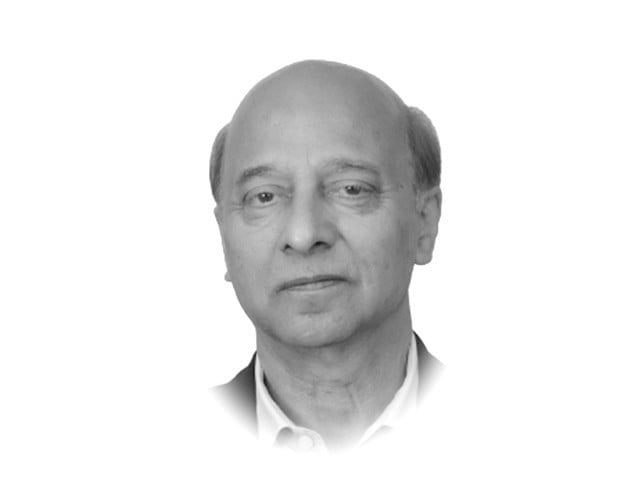
The spokesperson for the Ministry of Foreign Affairs Mumtaz Zahra Baloch made a rare statement during her weekly press briefing on September 5.
"The hideouts of terrorists groups in Afghanistan are not Pakistan's concern alone," said the spokesperson, alluding to a report by a United Nations experts' group (released in July). If interpreted correctly, the spokesperson's statement amounted to a rare acknowledgement that counter-terrorism is a shared multilateral responsibility.
Before delving into what Pakistani authorities make of the current situation and how they propose to deal with it, let us first recall some crucial facts highlighted in the UN report.
= The Tehrik-e-Taliban Pakistan (TTP) has emerged as the largest terrorist group in Afghanistan. Led by Noor Wali Mehsud, the terrorist group receives big support from the Islamic Emirate.
= The TTP continues to operate at a significant scale in Afghanistan and to conduct terrorist operations into Pakistan from there, often utilising Afghans.
= The strength of the globally designated TTP may be up to 6,500 fighters.
= Afghan Taliban do not conceive of TTP as a terrorist group: the bonds are close, and the debt owed to TTP is significant.
= Regional al-Qaeda affiliates, nestled in Afghanistan, are assisting TTP in conducting high-profile terrorist activities inside Pakistan.
= The Afghan Taliban are unable or unwilling to manage the TTP's terrorist campaign against Pakistan.
= TTP operatives, along with local fighters, are being trained in al-Qaeda camps set up in several border provinces such as Nangarhar, Kandahar, Kunar and Nuristan. Al-Qaeda's support for TTP also involves sharing Afghan fighters for military staffing or attack formations.
By naming potential camps' sites, the UN report almost implied that Afghan soil has now turned into what North Waziristan once used to be for all shades of Al-Qaeda-inspired terrorist networks under the umbrella of the Haqqani Network based in Miranshah.
Zabihullah Mujahid, the Emirate spokesperson, literally dismissed the UN report, saying, "Concerns raised by Western countries and institutions regarding the extensive presence and escalating threat of ISIS in Afghanistan are unfounded and driven by propaganda. The Islamic Emirate does not allow anyone to use Afghan soil against the security of any other country or to pose threats from Afghanistan."
Interestingly, Taliban only name TTP when they respond to Pakistani statements, saying it is an internal security matter for Islamabad to deal with. "TTP has bases and territory under its control in Pakistan from where it launches attacks," reads the official position.
But Afghanistan's neighbours are hardly impressed by what the Taliban authorities insist on. The Astana Declaration essentially reflected their deep concerns.
As for Pakistani spokesperson's latest statement, one wonders if this acknowledgement is real and anchored in the realisation that the terror we face is beyond the capacity of a single country. So far, the talk has largely focused on the presence of terrorist groups in Afghanistan and not really on the collective "responsibility".
Another question kicked up by this statement is whether Pakistan has developed clarity on the nature of this threat. That is: is it facing an organic violent movement or a proxy-terror campaign anchored in larger geo-politics?
And linked to it is the question whether the country is now ready for a multilateral collaborative counter-terrorism mechanism as suggested by Chinese President Xi Jinping at the SCO's 24th summit at Astana, Kazakhstan?
In his speech, Xi called on member states to "ensure the bottom line of security in the face of real threats of the Cold War mentality", and urged them to practise the vision of common, comprehensive, cooperative and sustainable security.
It was an indirect reference to the proxy wars that we are currently witnessing in south and west Asia. The declaration underscored the "UN's role as the central coordinator in the global fight against terrorism, support the international community in fully implementing the UN General Assembly and Security Council counter-terrorism resolutions and the UN Global Counter-Terrorism Strategy, and jointly crack down on all terrorist organizations and individuals designated by the Security Council."
Xi originally propounded this idea in his Global Security Initiative (GSI), which called on nations across the globe "to adapt to the drastically shifting global environment in a spirit of solidarity and to approach the complex and interconnected security concerns with a win-win mentality."
SCO member states opposed in principle the linking of terrorism to any particular country, ethnic group or religion, but they through the declaration exhorted the Afghan government to "take concrete measures" to ensure its soil is not used for terrorism against any other state.
Pakistan says the same, but is it now aligning itself with the idea of multi-national collaboration against trans-national terrorist networks? Iran, China and Uzbekistan in particular appear keen on forging such a mechanism, but Pakistan still seems reluctant to embrace the idea for reasons best known to the policymakers.
But if the authorities are convinced about the nature of the terrorism presently battering Pakistan i.e. if it believes the ongoing wave of terrorism is externally driven then what stops them from joining hands with other affected nations to jointly take on the trans-border terror networks which operate with more or less similar objectives i.e. act drivers of instability, disruption and deterrence to economic progress. Clear diagnosis of the disease is the first step to reconcile with the idea of seeking friends' help. Mere verbose anti-terror rhetoric in the absence of strategic clarity on the causes is not convincing.




1725369967-0/Untitled-design-(10)1725369967-0-165x106.webp)







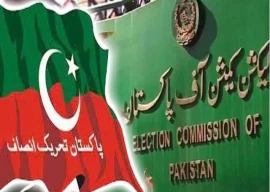
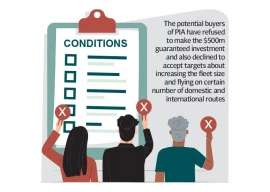
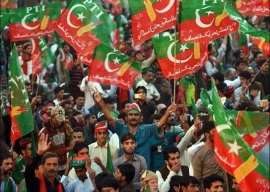

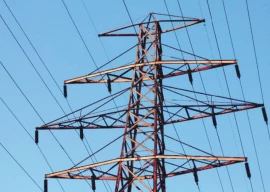
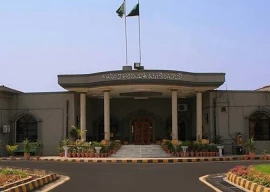


COMMENTS
Comments are moderated and generally will be posted if they are on-topic and not abusive.
For more information, please see our Comments FAQ